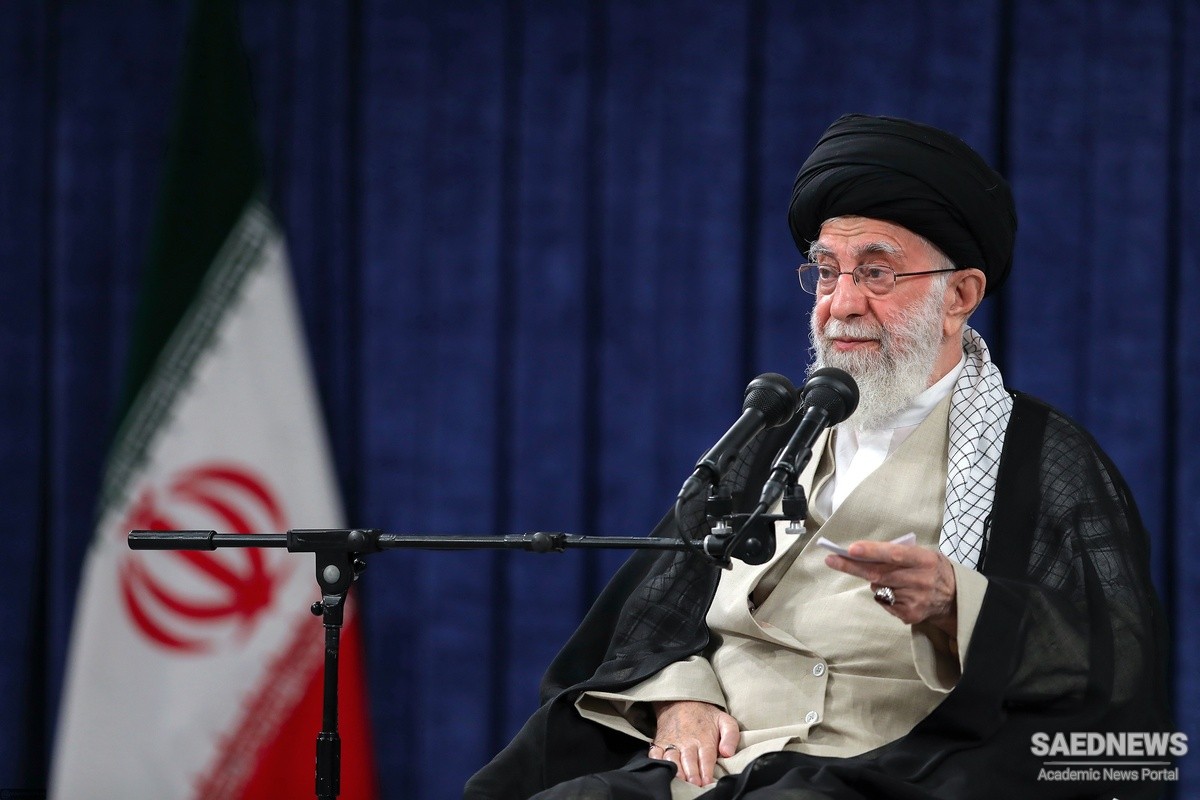SAEDNEWS, TEHRAN: The Leader emphasized that the enemy used all the means and elements that are required to disrupt and destroy a country. “There was an economic factor; of course, the economic situation of the country was not and is not in a good state, therefore people’s problems with the costs of living provided the grounds for them to use this factor.” Imam Khamenei added that, “other elements of disruption included security factors, infiltrations, espionage teams and Iranophobic uproars by the Arrogance in the world via different ways and methods of propaganda. They also incited certain elements inside the country to accompany them, provoked different ethnic, religious, political, and personal motives and made use of widespread propaganda. But despite this, they failed because their calculations were incorrect.”
The Leader referred to examples of the enemy’s miscalculations. He said that they imagined that because of economic problems, the Iranian nation would cooperate with their plans of subversion and separatism. The Leader also stated that the enemy imagined that by using foul language and insults they would be able to make the country’s officials become passive, hoping they would get them out of the picture. They thought they could create differences of opinion among the country’s high-level officials by using temptations and creating commotions.
Imam Khamenei further noted that, “the enemies imagined that they could undermine the Islamic Republic’s determination by using the petrodollars of a mercenary country of the US. They thought that by inciting some mercenary elements to seek asylum in another country and by encouraging them to smear Iran, our youth would become discouraged. They were mistaken, for the will and determination of the Islamic Republic was stronger and more adamant than all the elements of their power.”
The Leader of the Islamic Revolution added that, “the enemy has been doing everything it can to act against the Islamic Republic for the past 40 years, but because their calculations have been incorrect, they have failed up until now and they will continue to face defeat in the future.”
He underlined that even though there are differences in taste and opinion in the country, there is still a consensus among the people about Islam, the government and the Revolution. “So, it is important not to lose this unity and not to contribute to ethnic and religious differences and the provocation of feelings of one group against another,” he said.
In the beginning of this meeting, the Leader of the Islamic Revolution underlined the fact that eulogies are a part of the Shia heritage, "It is a form of hybrid art, created from the combination of a nice voice, a good poem, a suitable melody, and rich content. All its components need to be beautiful, just like other valuable religious texts.”
Imam Khamenei regarded the raising of society’s intellectual understanding as being one of the missions of the eulogists.
"In eulogies, in addition to attaining knowledge, there is also a stirring of emotions. Of course, the presence of emotions is not beneficial in the absence of reasoning. However, the unique feature of epistemology in Shia texts is that, in addition to emotions, it also increases the audience’s depth of understanding.”
The Leader of the Islamic Revolution advised the eulogist to realize where they stand as a eulogist, adding that they should be at the service of the Revolution with the great, attractive phenomenon of eulogy. In other words, they should use these as a means to transform the country and increase the capacity to “fight against tyrants, oppressors, the Arrogant Powers, and corruption.”
Imam Khamenei regarded the work of building culture as being another important part of the eulogists' duties. He stated, “’Standing up to the enemy or retaliating against it,’ ‘scientific progress,’ ‘family and raising children,’ ‘insight and giving hope,’ and ‘standing firmly against the enemy’s tactics of creating despair in the minds of the youth’ are among the concepts that require cultural development and the intellectual and practical guidance of your audience.”
In the beginning of this meeting, eight eulogists and poets recited poems and eulogies about the virtues of Lady Fatimah Zahra (pbuh).


 Supreme Leader Highlights the Importance of the Increased Participation of Women in Policy, Decision Making
Supreme Leader Highlights the Importance of the Increased Participation of Women in Policy, Decision Making














































